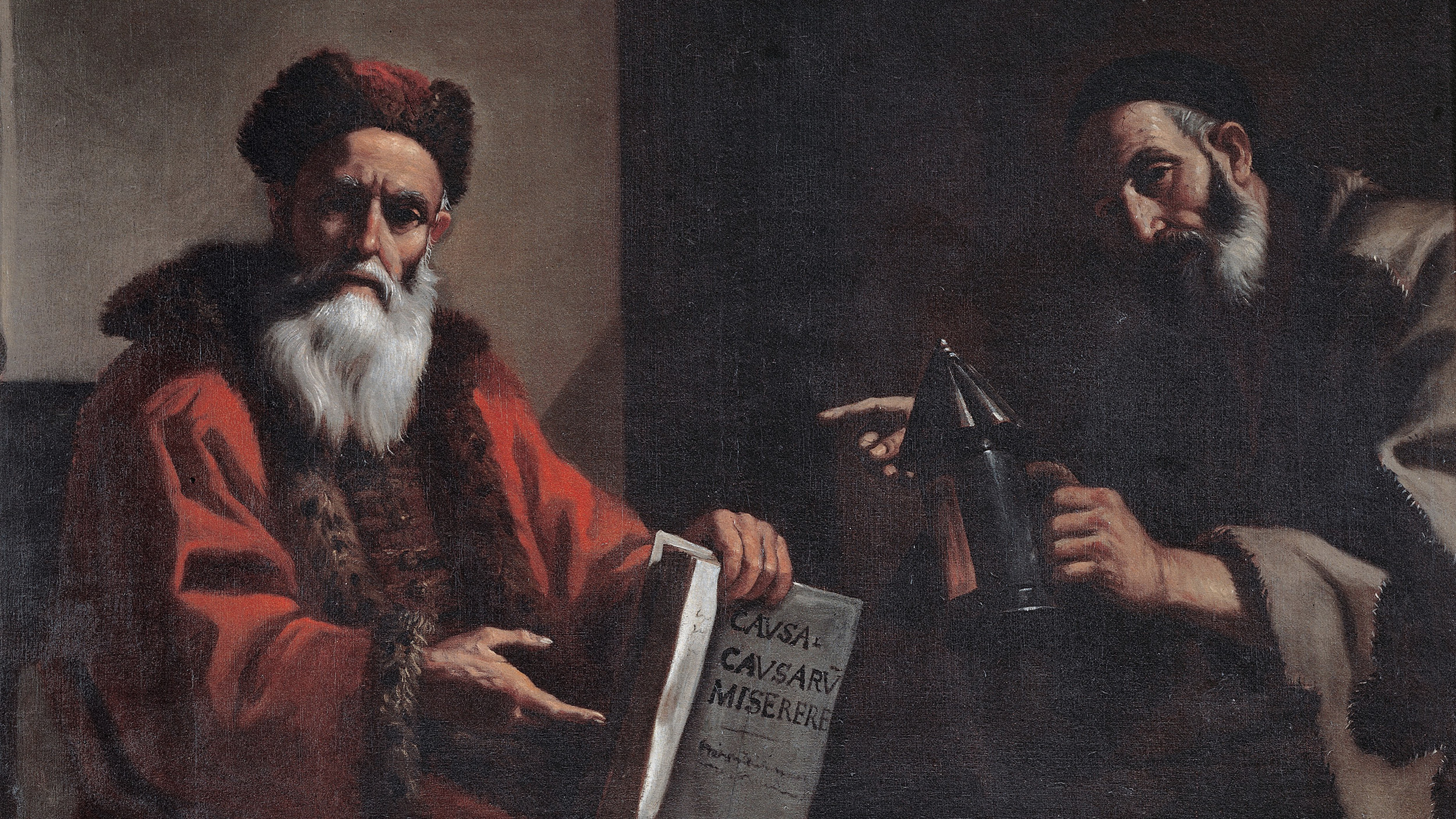Everyday Philosophy: Should you always call out bad opinions?

- Welcome to Everyday Philosophy, the column where I use insights from the history of philosophy to help you navigate the daily dilemmas of modern life.
- This week, we look at when we defer to people’s opinions and when to debate them, especially when it concerns the elderly.
- Along the way, we look at Hilary Putnam’s work on social knowledge and Plato’s Philosopher Kings.
I was wondering: is age really an indication of who deserves respect? I’ve been taught growing up that you should always respect your elders, no matter what. But if your elders are incorrect in a belief, isn’t it your ethical responsibility to call them out on it? Or would that be morally wrong, since they’re older and apparently wiser than you?
Rhea, US
When you tell people that you write about philosophy for a living, they tend to do one of two things. Usually, they nod politely, possibly making some reference to a philosophy book they read at school, and then we all move on to other, easier topics. Occasionally, though, they see it as a challenge. This is their time to have that debate they’ve been agitating for. And so they bring out the debate. They raise some philosophical conundrum — usually to do with ethics or religion — and hope for a good tête-à-tête. I almost always disappoint. The truth is, I find debating quite exhausting. Like any kind of exercise, I find I need to be in the right mood and warm up thoroughly beforehand. Which means I will usually just nod along, acquiesce to the most ridiculous of suppositions, and try to talk about the weather.
I think what Rhea is asking relates closely to this issue. The question is whether you have a moral obligation to debate people, especially when they hold dubious or even reprehensible opinions. Does it matter who they are — the elderly or not? Does it matter where you are or how you feel? Or should you always pull out your debating gloves and get to it?
To answer the question, we’re going to look at two different concepts: deference and disagreement. We’ll meander our way through how there’s a time and a place for both and try to come up with an answer for Rhea.
Deference: I bow to your opinion
You’re probably a smart person. Why else would you have read past the introduction? But I will bet my left ear that you don’t know everything in the world. With only a finite number of hours in a life, we can only ever become a narrowly focused dilettante: we pick a lane and we stick to it. For the vast majority of cases, we defer to other people’s opinions and expertise. The philosopher Hilary Putman once argued that all of our knowledge and thoughts rely upon our social environment. We divide our epistemological labor and simply take on what other people have worked out. Putman gives an example of beech and elm trees. I couldn’t tell the difference between a beech and an elm tree. I suspect that most of you can’t either. So is it meaningless when we read a novel featuring elm trees? Are we talking nonsense if we talk about beech trees? Well, no. Because while I, personally, can’t classify trees particularly well and can’t list the factors that distinguish an elm from a beech, I know that someone else can. The idea of an elm tree is “fixed socially,” which is to say that I use the term in deference to experts on the matter.
How does this relate to Rhea’s question? Well, in his Republic, Plato makes a similar point to Putnam about deference. But where Putman talks about recognizing trees, Plato talks about recognizing justice, truth, and goodness. For these, most people will not know what they mean. They can no more tell you what “goodness” is than they can ID a beech tree. And so, they must defer to the “Philosopher Kings,” the enlightened sages who have escaped the cave and returned to the world with earned wisdom.
So, for Plato and Putnam, at least, we should sometimes defer to our elders in those cases where they actually do know better. They’ve got knowledge and expertise you don’t. (It’s worth noting that there’s good reason to think that deference to our elders is partly “hardwired” into humanity. After all, all human societies are hierarchical to some degree, and age is one way we organize those hierarchies, though the extent to which we do this varies across cultures. Ultimately, respect and deference to our elders are values that might help maintain social order, though few would argue that age automatically grants someone immunity from having their bad ideas checked.)
Difference: I’m not so sure about this
Plato was very much against democracy, but it’s not fair to say he wanted everyone to kowtow to unelected Philosopher Kings based on their birth or some tattoo they wore. We should not defer to Socrates because he was born with some blue-blooded right to rule, but rather because he had proven again and again that he was the best debater. In other words, we should accept what Socrates (or his narrator, Plato) says about justice because, in the great dialectical cage match of the Athenian agora, he was the last man standing. Plato explicitly says in his dialogues that we come to grasp (or recall) the truth of the matter through debate and discussion. It’s why he hated books; a book is a one-sided, pontificating lecture, and it allows for no debate. If you never discussed ideas, they would never grow.
So, the point to be made here is that we should defer to the elderly, not because of their non-relevant factors, like their age, but because of the relevant factors, like their experience. We defer to those who have proven themselves to be sages in the past. If everything Granddad has told you has turned out to be wise and helpful, then defer to him about other matters. But if you have doubts, raise them. Take Socrates into the ring and see how many rounds he can last.
When something is broken
In his seminal work, Being and Time, the philosopher Martin Heidegger makes a distinction between something being “handy” and “at-hand.” Without losing you at the conclusion in the sticky morass of German phenomenology, the idea is that we all generally go about our lives taking things for granted (“handy”) until they break or start to behave oddly (“at-hand”). I think something similar might be going on with Rhea and debating the elderly.
In most walks of life, we go along with what our grandparents tell us. Unless they’ve grown into serial liars in their dotage, they are likely telling you the truth, and their advice goes with the gravity of having experienced many years in the field. Most of the time, we nod along happily, deferring to their words, if not always listening closely enough. But sometimes, they will say something that will jar. It will challenge your existing belief structure and demand some kind of attention.
In this case, Rhea, you have to make a decision. Has this person earned the title “wise”? Are they a Philosopher King? If so, you might do well to listen and learn a bit. Or, do you think there are a few chinks in their armor that tarnishes their trustworthiness? If so, dust off those debating gloves, and throw a few punches at the elderly.




